- Home
- Chris Ryan
Hellfire
Hellfire Read online
Also by Chris Ryan
Non-fiction
The One That Got Away
Chris Ryan’s SAS Fitness Book
Chris Ryan’s Ultimate Survival Guide
Fight to Win
Fiction
Stand By, Stand By
Zero Option
The Kremlin Device
Tenth Man Down
Hit List
The Watchman
Land of Fire
Greed
The Increment
Blackout
Ultimate Weapon
Strike Back
Firefight
Who Dares Wins
The Kill Zone
Killing for the Company
Osama
Masters of War
Hunter Killer
Chris Ryan Extreme
Hard Target
Night Strike
Most Wanted
Silent Kill
In the Alpha Force Series
Survival
Rat-Catcher
Desert Pursuit
Hostage
Red Centre
Hunted
Blood Money
Fault Line
Black Gold
Untouchable
In the Code Red Series
Flash Flood
Wildfire
Outbreak
Vortex
Twister
Battleground
In the Agent 21 Series
Agent 21
Reloaded
Codebreaker
The Wire
Deadfall
Under Cover
Hellfire
Chris Ryan
www.hodder.co.uk
First published in Great Britain in 2015 by Coronet
An imprint of Hodder & Stoughton
An Hachette UK company
Copyright © Chris Ryan 2015
The right of Chris Ryan to be identified as the Author of the
Work has been asserted by him in accordance with
the Copyright, Designs and Patents Act 1988.
All rights reserved. No part of this publication may be reproduced,
stored in a retrieval system, or transmitted, in any form or by any
means without the prior written permission of the publisher, nor be
otherwise circulated in any form of binding or cover other than that
in which it is published and without a similar condition being
imposed on the subsequent purchaser.
All characters in this publication are fictitious and any resemblance
to real persons, living or dead is purely coincidental.
A CIP catalogue record for this title is available from the British Library
ISBN 978 1 444 78331 5
Hodder & Stoughton Ltd
Carmelite House
50 Victoria Embankment
London EC4Y 0DZ
www.hodder.co.uk
CONTENTS
Glossary
Epigraph
Prologue
Part One
One
Two
Three
Four
Five
Six
Seven
Eight
Nine
Ten
Eleven
Twelve
Thirteen
Part Two
Fourteen
Fifteen
Sixteen
Seventeen
Eighteen
Nineteen
Twenty
Twenty-one
Part Three
Twenty-two
Twenty-three
Twenty-four
Twenty-five
Twenty-six
Twenty-seven
Twenty-eight
Twenty-nine
Thirty
Thirty-one
Thirty-two
Author’s Note
GLOSSARY
1 Para
1st Battalion, Parachute Regiment (Special Forces Support Group)
AW50
anti-material sniper rifle
C-4
high-yield plastic explosive
COBRA
Cabinet Office briefing room
CP
close protection
ETA
estimated time of arrival
fan dance
the fitness and navigation phase of special forces sel
frag
fragmentation grenade
GCHQ
Government Communications Headquarters
hazmat suit
whole-body garment worn as protection against hazardous materials
head shed
military command centre
HK416
Heckler & Koch assault rifle firing 5.56x45mm NATO rounds
HK417
Heckler & Koch battle rifle firing 7.62x51mm NATO rounds
HQ
headquarters
ident
identification
L86
a variant of the SA80 assault rifle, standard issue to British armed forces
LAW
light anti-armour weapon
LZ
landing zone
MI6/SIS/the Firm
Secret Intelligence Service
MoD
Ministry of Defence
NV
night vision
PC
patrol commander
RIB
rigid-hulled inflatable boat
RPG
rocket-propelled grenade
RTA
road traffic accident
RTU
returned to unit
Rupert
military slang for an officer
RV
rendezvous
SBS
Special Boat Service
scaley
member of the Royal Corps of Signals
SF
special forces
Sig 225
SIG-Sauer P225 pistol firing 9x19mm rounds
transponder
aircraft identification device
VHF
very high frequency
white phos
white phosphorous grenade
‘I know not with what weapons World War III will be fought, but World War IV will be fought with sticks and stones.’
— Albert Einstein
PROLOGUE
The Iraq–Syria border. Sunset.
It was a featureless patch of desert, but surrounded at a distance by scenes of war.
Six kilometres to the north there was an Islamic State command and control centre, reduced to rubble by American air strikes. But local command and control really took place in a small Bedouin encampment that the infidel didn’t know about, and which they would never bomb, because it was a civilian target. They were weak about such matters.
Three kilometres to the west, a laser-guided Brimstone missile had blasted a crater in the sand thirty metres wide. Two hundred thousand dollars’ worth of ordnance had taken out a single Land Rover, unoccupied.
Ten kilometres to the south, there was a border town that had fallen to the brutal troops of the Islamic State. It had taken the mass execution of three hundred civilians to subdue the malcontents, but now it was overrun with insurgents, completely unopposed by the terrified locals.
Here, however, the undulating sand and rough, dusty scrub under a clear sky looked just as it had done for hundreds, even thousands, of years. And a lone vehicle containing two men trundled through the twilight. For one of these men, who had a crooked nose, lank, greasy hair and wispy stubble on his chin, this was the most exciting journey of his life.
The air was hot and dry. He was sweating and dirty. B
ut he didn’t mind. Twenty-four hours ago he had been stuck in the grey drizzle of an early Peckham morning. Now he was watching a blood-red sun set over the dunes. For years he had longed to swap his old life for this.
His name was James Wilson. He hated it. It was so British. He couldn’t understand why his parents, who had moved to England from Pakistan when they were seventeen – just a year older than James was now – couldn’t have given him a better, Islamic, name. He was always trying to change it. On his unsuccessful YouTube music channel, where he chanted self-penned Jihadist lyrics of which he was very proud, he called himself Dubz-Manuva. And out here, on the fluid border between Iraq and Syria, he was Hassan. He much preferred that name. It sounded more noble, and he had enjoyed tearing up his British passport once he had cleared immigration at Hatay airport in southern Turkey. Out here, nobody would call him a dirty Paki bastard ever again.
Now he was looking forward to meeting with his comrades, learning how to become an ISIS fighter. He had spent many hours daydreaming about the heroic things he would do. And now those daydreams were becoming a reality.
‘Did you have any trouble leaving England?’ asked the lean, fierce militant who was driving him along a deserted highway.
Hassan’s companion hadn’t told him his name, or even where they were going. Hassan admired his confidence. Admired the way that the gangster-like border guards in military uniform had melted away with one look at his face as they crossed from Turkey into Syria and from Syria into Iraq. Admired the way his assault rifle lay carelessly on the back seat, and the handgun – he didn’t know what sort – rested on the dashboard, a warning to anyone who dared to stop them.
‘Piece of piss,’ said Hassan. The militant frowned. He obviously didn’t know that expression. ‘I mean . . . yeah . . . it was well easy. Told my mum I had to be in college early, innit? I reckon my sister was a bit suspicious, but she’s only eleven. Left the house at seven, seven thirty . . . I was on the plane to Turkey by midday . . . Got this girl to tell the teachers I was off sick . . .’
The militant’s frown grew more pronounced. ‘There will be no women in our schools when the Caliphate has spread,’ he said. ‘They do not need to be there. It is un-Islamic.’
‘Yeah,’ Hassan said quietly. ‘Bitches.’
About twenty metres off the road, next to a patch of low brush, he saw the shell of an old saloon car. It must have been destroyed by some kind of car bomb because jagged sheets of broken chassis were pointing outwards from its core. As they zoomed by, Hassan squinted. Was it a trick of the light, or had he seen the remains of a body slumped over the steering wheel?
‘Where are we going?’ he asked.
‘You’ll see.’
It was almost dark when they turned sharply off the highway and on to a poorly kept road. Five minutes later, Hassan could see the outline of a small desert town in the distance. Even in the half-light he could tell there had been fighting here because he could just make out, in silhouette, the slant of a toppled electricity pylon a couple of hundred metres up ahead. ‘Where are we?’ he asked quietly. His companion didn’t answer.
On the outskirts of the town, the occasional local stood by the side of the road and gave them hard stares. Hassan realised they were a curiosity. Theirs was the only vehicle entering the town.
They passed a run-down concrete building on their left. A black flag with white Arabic lettering hung across its facade. Next to it was a mosque, outside which was a crowd of men, all bearded. There were no women on show. No children. They approached a lone acacia tree to which a few sheep had been tethered, and came to a halt in the shade of its branches. Theirs was the only vehicle around, with the exception of two old motorbikes leaning up against the side of a low stone building to their right. There were no electric lights. No kids playing in the street. Hassan felt like he had gone back in time.
‘Get out.’
Hassan did as he was told. His jeans and T-shirt were crumpled and sweaty. He felt very out of place compared to his companion, who wore camouflage trousers and a black vest that showed his tough, sinewy muscles. It was strangely silent here. No music. No conversation. The men outside the mosque stared at him. Hassan stared fiercely back.‘This way,’ the militant said. He strode along the road, and Hassan had to trot to keep up.
‘They told me there would be other people like me here, innit?’ Hassan said. ‘People from the UK. Are we going to meet them now?’ He was looking forward to some comradeship. He pictured himself in the desert, sitting outside a tent as the sun set, stripping down a rifle and talking with his new jihadi friends.
No response. The militant crossed the road towards another concrete building, two storeys high, whose windows had been blasted out. He didn’t enter, but walked round to its left-hand side. Hassan followed. He saw there had once been a perimeter fence around the back yard, but only parts of it remained now: a few posts, the occasional fence panel, some curled and jagged lengths of razor wire. His companion turned towards the back door of the building. Hassan followed.
Then he stopped.
He blinked heavily, as though he thought his eyes might be deceiving him. But they weren’t. Just fifteen metres away, resting against the back wall of the building, about four metres high and a couple of metres wide, was a wooden cross. A crucifix.
And on the crucifix was a man.
His feet were bound to the upright post with wire, and a large nail protruded from each wrist, holding the arms to the crossbeam. The face was blindfolded, and a sheet of white card covered his torso, with blood-red Arabic writing on it. The man was clearly dead. Hassan could tell because a large black bird had perched on his arm and was pecking away at the flesh, but the man didn’t even twitch.
The militant turned and saw Hassan staring at this gruesome sight. ‘A traitor,’ he said simply. ‘Accused of selling secrets to the West. We executed him three days ago.’ He looked Hassan up and down. ‘Some advice,’ he said. ‘You’re about to meet someone. Do what he says. Otherwise . . .’ He looked meaningfully back at the crucified man. ‘Now get inside.’
The interior was a wreck. The floor was littered with broken plaster and brick. Cables hung from the ceilings. There was a faint smell of burning. The militant strode through it all, but Hassan hesitated. ‘Is it . . . is it safe in here?’ he asked.
The militant turned. ‘You came out here to fight,’ he said. ‘And you expect it to be safe?’ He continued to wade through the rubble until he reached a flight of steps leading downwards. Hassan felt his cheeks burning with embarrassment as he followed. He would make sure he didn’t say anything like that again.
The stone steps led into a dark basement. It was much colder down here. He found himself in a room about ten metres by ten, with a door at the far side. It was lit by a small, smoky oil lamp in one corner. There was no rubble on the floor down here, but there were two people. One of them was tall and thin, with white skin and dark stubble. The other was sitting on a low stool. His head was wrapped in a red and white shamagh, so that it was impossible to see his face. Just his eyes, gazing out.
This man had clearly been expecting them. When he spoke to the militant who had brought him here, his voice was muffled by the cloth. They spoke in Arabic. Hassan noticed that the militant’s demeanour had changed. He was respectful, almost frightened. Hassan didn’t know why. The masked man didn’t even seem to be carrying a gun. Hassan found his eyes drifting towards the other guy. Looking at his white skin, he wondered if he was British, and smiled at him. The smile wasn’t returned.
The figure at the stool stood up. He slowly walked across the room towards Hassan, who became aware of a different smell: a pungent perfume. When the figure was half a metre away, he stopped and looked Hassan up and down. ‘This is him?’ His English was very clear, but with an accent. Middle Eastern. Hassan tried to place it more exactly, but couldn’t.
The militant bowed his head.
‘He doesn’t look like much. If you’ve brought me a coward,
I’ll have you both killed.’
Hassan felt himself sweating. ‘I’m not a coward,’ he said.
Silence. The man’s dead, dark eyes stared at Hassan from behind his shamagh. Hassan found himself sweating even more. He realised he should have kept his mouth shut.
Very quietly, the man spoke to the white-skinned guy.
‘Show him, Jahar,’ he said.
Jahar nodded. He walked to the door on the opposite side of the room, put a key in the lock and opened it. Then he gestured at Hassan to look inside.
Hassan crossed the room and looked.
This second room was even darker – Hassan couldn’t tell how big it was. It stank of excrement. Kneeling about three metres from the door, with his head bowed, was a man. He was white, with shaved hair and several days of stubble. He wore bright orange robes. He blinked in terror towards the light, but said nothing.
Hassan was aware – from the perfumed smell – of the mysterious figure behind him. He spun round to find him standing very close.
‘So you want to fight?’ the figure whispered.
‘Yeah.’
‘You want to bring the law of Sharia first to Arabia, then to Africa, then to the world? One glorious caliphate to the glory of Allah?’
Hassan didn’t even know what the man was talking about. He just nodded.
‘Every caliphate requires a Caliph,’ said the man. ‘And that is what you will call me. But if you speak of me to anybody, you and the family you have left behind can expect the same fate as the crucified man you met on your way in. Do you understand?’

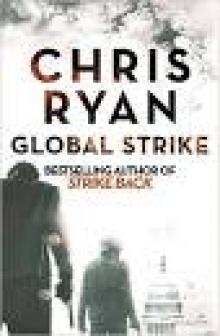 Global Strike
Global Strike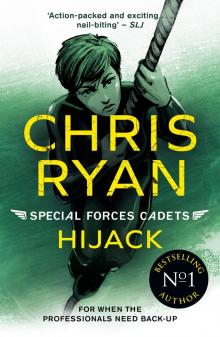 Hijack
Hijack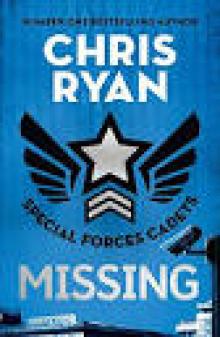 Special Forces Cadets 2
Special Forces Cadets 2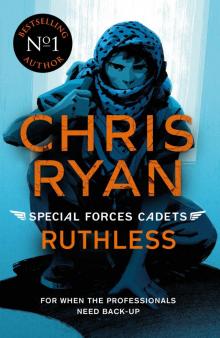 Ruthless
Ruthless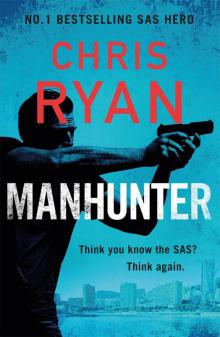 Manhunter
Manhunter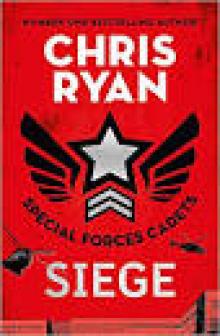 Special Forces Cadets 1
Special Forces Cadets 1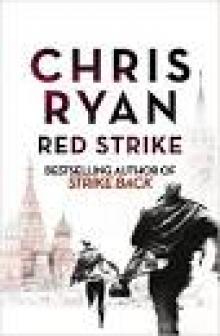 Red Strike
Red Strike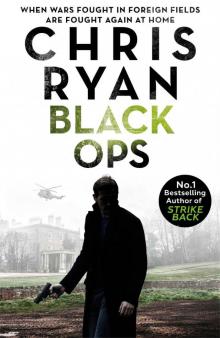 Black Ops
Black Ops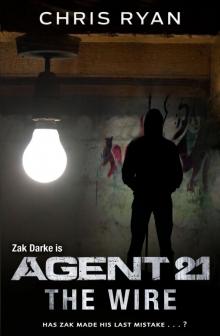 Agent 21: The Wire
Agent 21: The Wire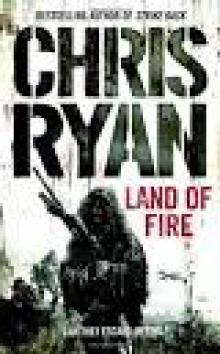 Land of Fire
Land of Fire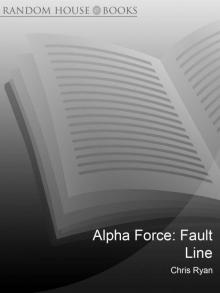 Alpha Force: Fault Line
Alpha Force: Fault Line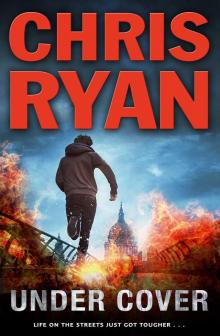 Under Cover (Agent 21)
Under Cover (Agent 21)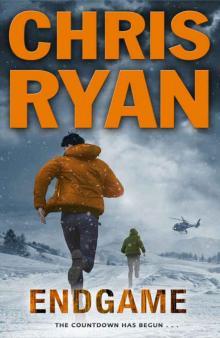 Endgame (Agent 21)
Endgame (Agent 21) Red Centre
Red Centre Blackout
Blackout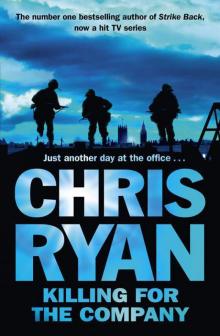 Killing for the Company
Killing for the Company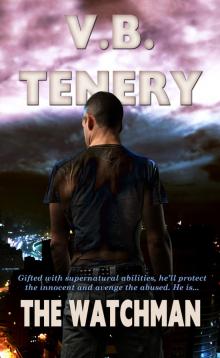 The Watchman
The Watchman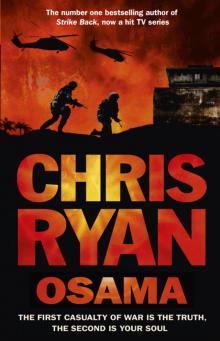 Osama
Osama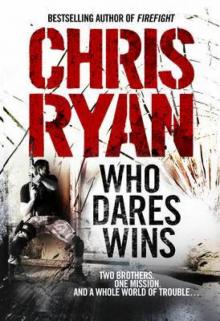 Who Dares Wins
Who Dares Wins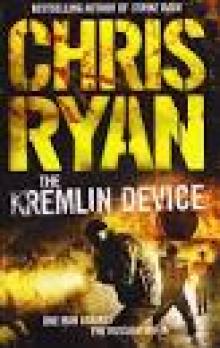 The Kremlin Device
The Kremlin Device Hunter Killer
Hunter Killer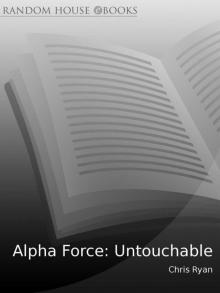 Alpha Force: Untouchable
Alpha Force: Untouchable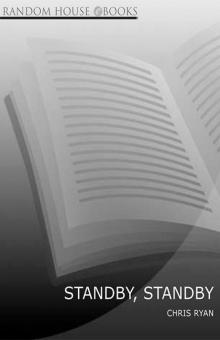 Stand By Stand By
Stand By Stand By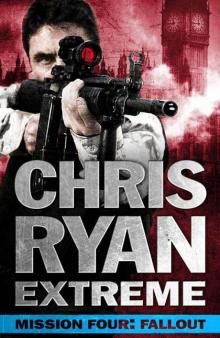 Chris Ryan Extreme: Hard Target: Mission Four: Fallout
Chris Ryan Extreme: Hard Target: Mission Four: Fallout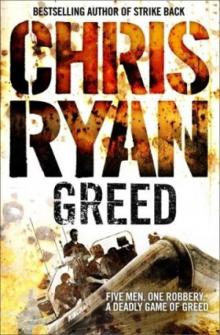 Greed mb-1
Greed mb-1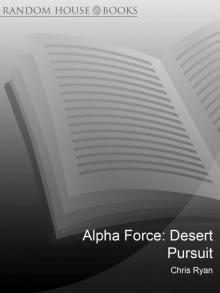 Alpha Force: Desert Pursuit
Alpha Force: Desert Pursuit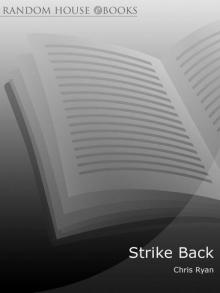 Strike Back
Strike Back Greed
Greed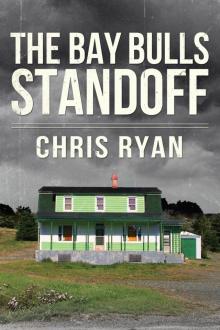 The Bay Bulls Standoff
The Bay Bulls Standoff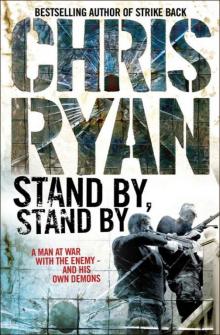 Stand By, Stand By gs-1
Stand By, Stand By gs-1 Outbreak
Outbreak Hunted
Hunted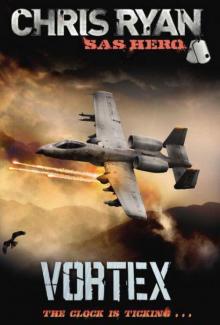 Vortex cr-4
Vortex cr-4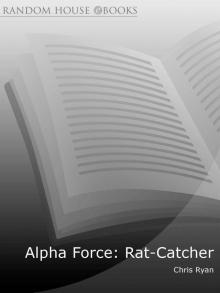 Rat-Catcher
Rat-Catcher Vortex
Vortex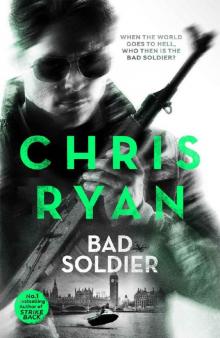 Bad Soldier
Bad Soldier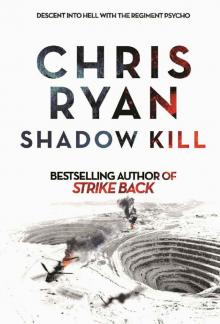 Shadow Kill: A Strikeback Novel
Shadow Kill: A Strikeback Novel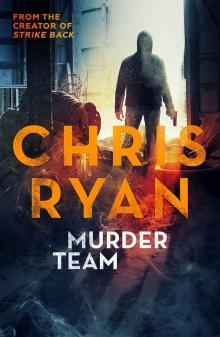 Murder Team (Kindle Single)
Murder Team (Kindle Single) One Good Turn
One Good Turn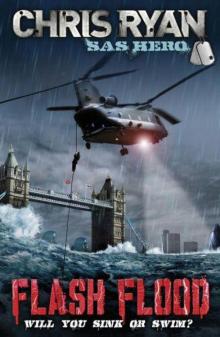 Flash Flood cr-1
Flash Flood cr-1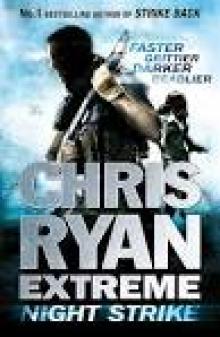 Night Strike
Night Strike Wildfire
Wildfire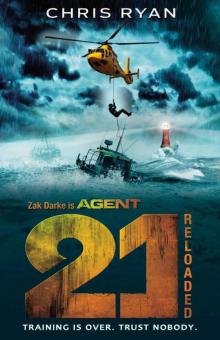 Agent 21: Reloaded: Book 2
Agent 21: Reloaded: Book 2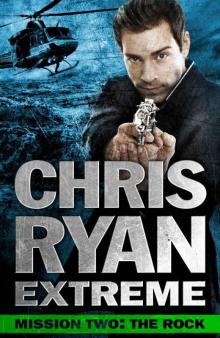 Chris Ryan Extreme: Hard Target: Mission Two: The Rock
Chris Ryan Extreme: Hard Target: Mission Two: The Rock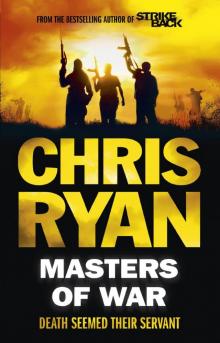 Masters of War
Masters of War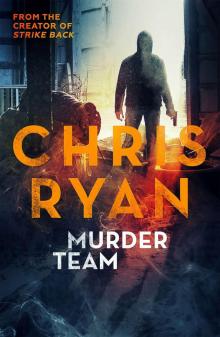 Murder Team
Murder Team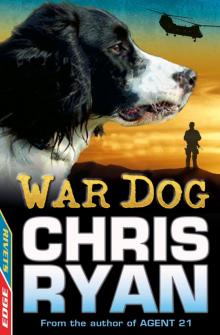 War Dog
War Dog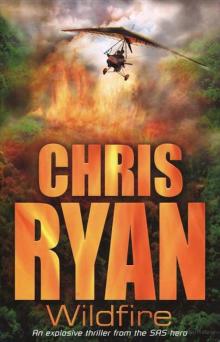 Wildfire cr-2
Wildfire cr-2 Survival
Survival The One That Got Away - Junior edition
The One That Got Away - Junior edition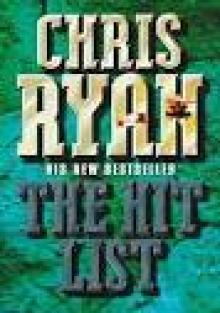 The Hit List
The Hit List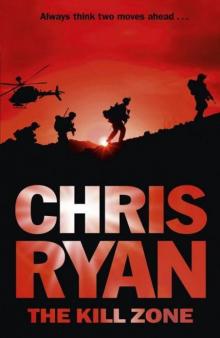 The Kill Zone
The Kill Zone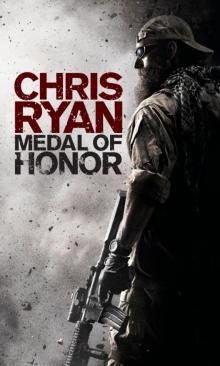 Medal of Honor
Medal of Honor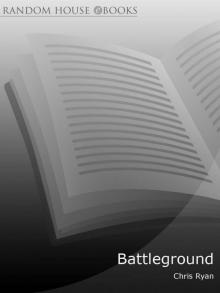 Battleground
Battleground Twister
Twister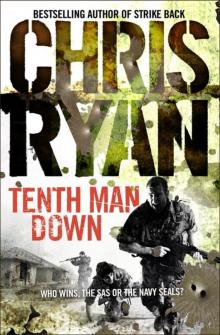 Tenth Man Down gs-4
Tenth Man Down gs-4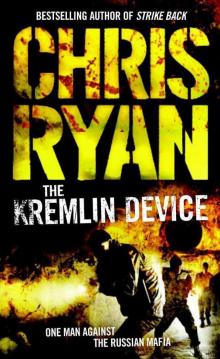 The Kremlin Device gs-3
The Kremlin Device gs-3 Hostage
Hostage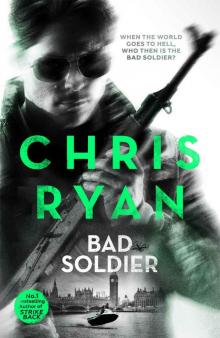 Bad Soldier: Danny Black Thriller 4
Bad Soldier: Danny Black Thriller 4 Alpha Force: Blood Money
Alpha Force: Blood Money Firefight
Firefight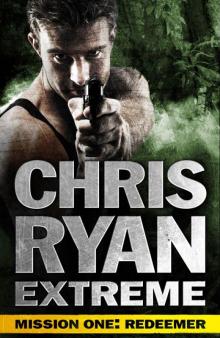 Chris Ryan Extreme: Hard Target: Mission One: Redeemer
Chris Ryan Extreme: Hard Target: Mission One: Redeemer Hit List
Hit List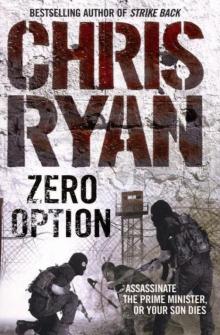 Zero Option gs-2
Zero Option gs-2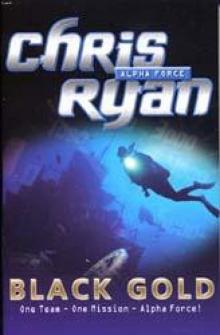 Black Gold
Black Gold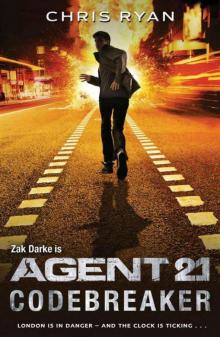 Agent 21: Codebreaker: Book 3
Agent 21: Codebreaker: Book 3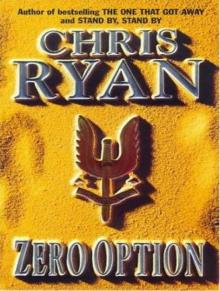 Zero Option
Zero Option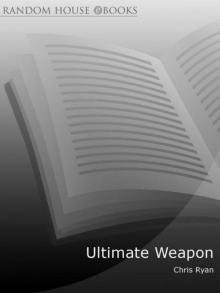 Ultimate Weapon
Ultimate Weapon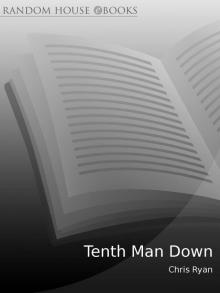 Tenth Man Down
Tenth Man Down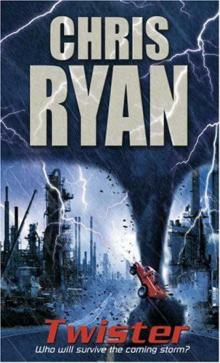 Twister cr-5
Twister cr-5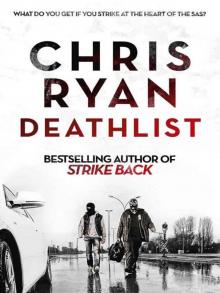 Deathlist
Deathlist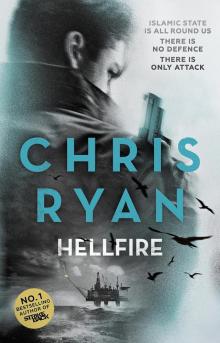 Hellfire
Hellfire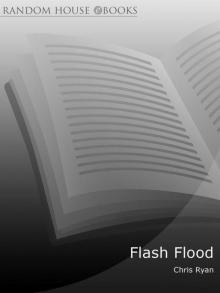 Flash Flood
Flash Flood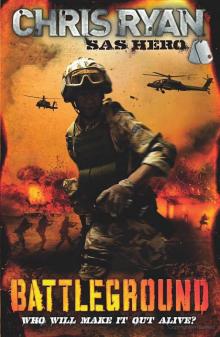 Battleground cr-6
Battleground cr-6 The Increment
The Increment